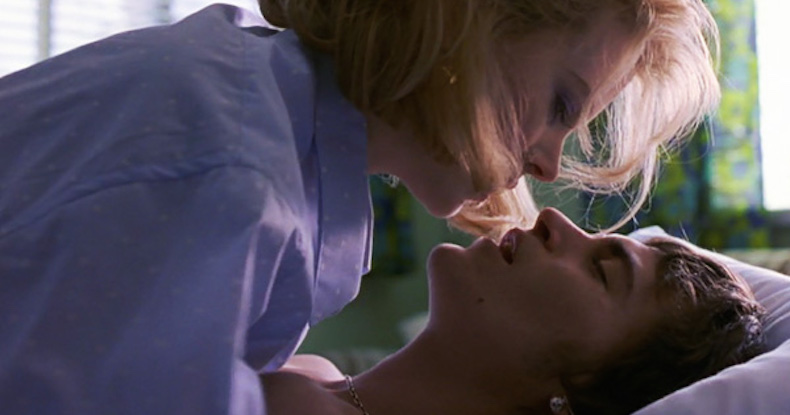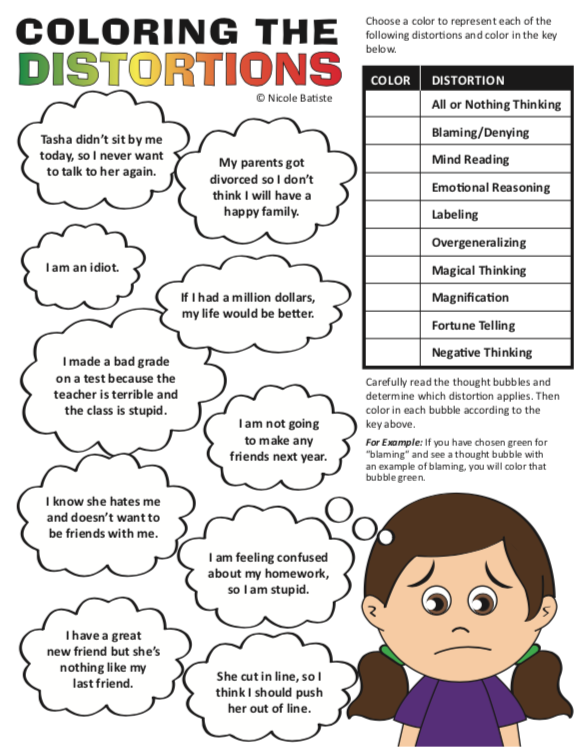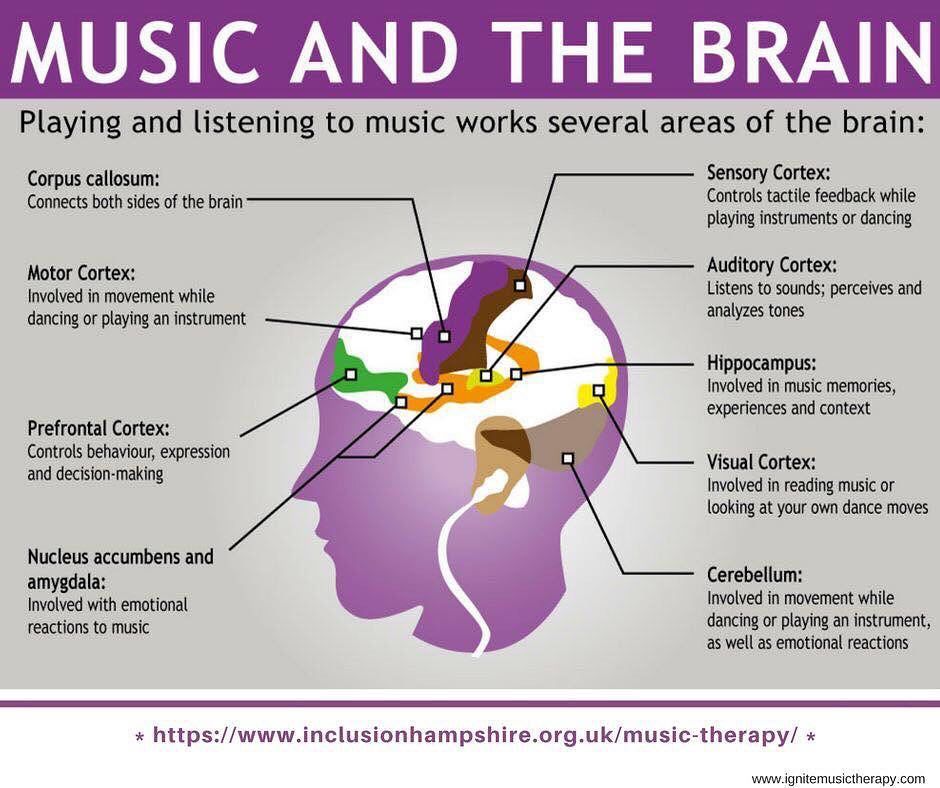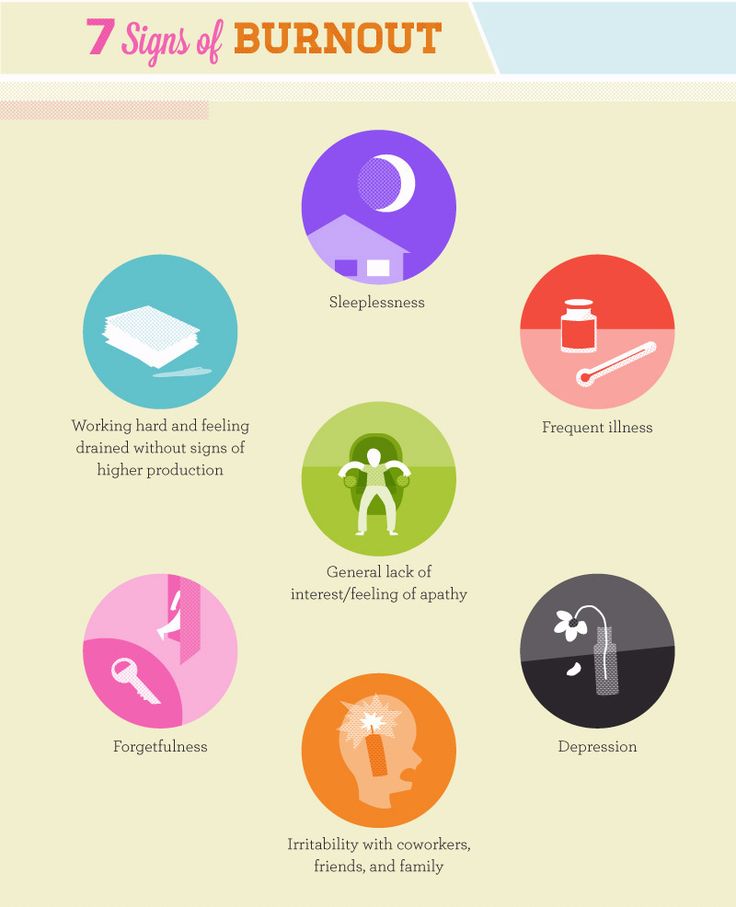Older men and affairs
Infidelity is raging in the 55+ crowd — but with a twist
My friend has been married to the same man she met in college and fell in love with more than 45 years ago. Together, they raised a passel of children who are all adults now. And together they have enough grandkids to field a family soccer team. Their home, as The Highwomen song goes, has “a crowded table where there’s a place by the fire for everyone.” Open, inclusive, warm. Safe and lasting.
If you had asked me last month whether they were happy, my answer would have been a resounding “yes.” But then my friend called with some shocking news. Her 69-year-old husband told her that a few weeks earlier he had met another woman on Facebook. The online relationship led to coffee, a walk on the beach, and intense deep conversation.
He said that this new woman, who is the same age as his wife lest you think that’s where this is going, excites him in a way he had never felt — or at least could no longer remember. He said the quandary was that he also deeply valued my friend and the life they had built together.
And so he had a proposal: He wanted an open marriage, one where he would spend half the week with his wife doing the regular things they always had, and then he would spend the balance of his time with this new woman, getting to know her better and seeing if she was, in fact, the person he was meant to spend the rest of his life with.
No, my friend didn’t murder him on the spot. Instead she called her lawyer and then her therapist — in that order.
My friend, as of this writing, is moving forward with a speedy divorce. She is crushed to smithereens, but hasn’t lost her wits about her. She can think about nothing else, she said, and ping-pongs between hating her husband for his betrayal and hoping he comes back to her.
She has a conversation in her head while she waits for the sleeping pill to kick in where she debates how she would feel if he had merely been physically unfaithful to her — say, had a one-night stand — than his emotional cheating on her. Emotional fidelity is the glue to any marriage, she said, which is why hers is now unraveling.
But my friend is also a pragmatist who spent her career doing scientific research, and also told me that what happened to her is hardly unique: Older people mess around. And they do so in greater numbers than ever before.
Research says older people are less likely to dissolve their marriages in the wake of extramarital sex.
Right about the time when we accepted “70 as the new 50,” the average age at which people reported having affairs outside their marriage rose sharply. Today, Americans aged 55 and older report having more extramarital affairs than Americans under 55, according to The Institute for Family Studies. Until 2000, the opposite was true.
There are a few reasons for that. We are talking, of course, about a generation that came of age during the sexual revolution. Having multiple sex partners was the norm. Some grew up with parents who were swingers.
Further, this is the generation quite familiar with using drugs to enhance their sexual experiences.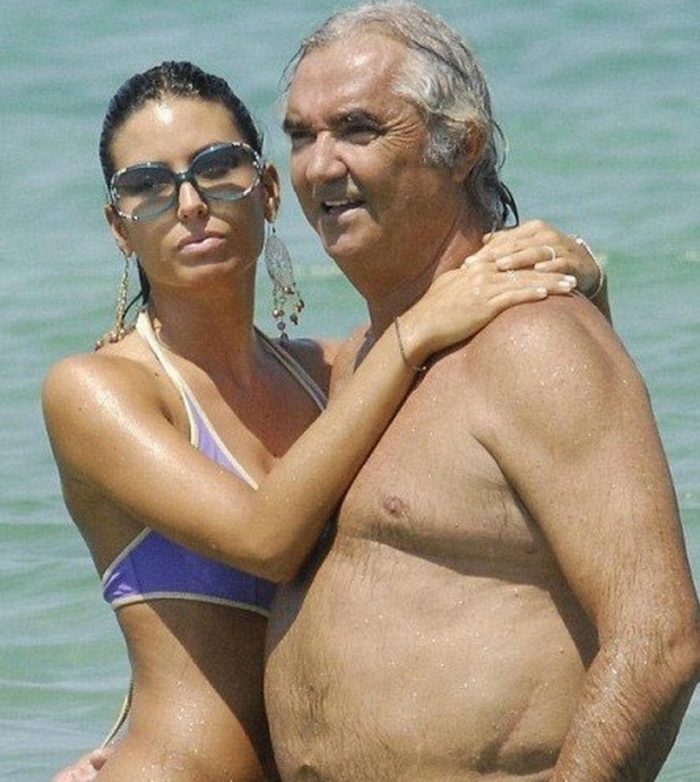 Back then it was weed and hallucinogens. Today, drugs like Cialis and Viagra are back in the bedroom helping things out. Men with erectile dysfunction can take a pill, and for women with vaginal dryness, there are lubes that even come with CBD oil, a product derived from cannabis.
Back then it was weed and hallucinogens. Today, drugs like Cialis and Viagra are back in the bedroom helping things out. Men with erectile dysfunction can take a pill, and for women with vaginal dryness, there are lubes that even come with CBD oil, a product derived from cannabis.
My researching friend says in her case, there was a perfect storm. Her husband is 69 — about to hit one of those milestone birthdays that slam you in the gut and you assess your life and happiness and wonder if you couldn’t be doing better.
But there was one piece of research that my friend found that gives her pause. In between calling her husband every name in the book and saying she could never trust him again, she found that older people are less likely to dissolve their marriages in the wake of extramarital sex.
That said, there is a long stretch of highway between forgiveness and forgetting and my friend hasn’t even gotten on the road.
Ann Brenoff was a staff writer and columnist for the Los Angeles Times, where she won a shared Pulitzer for coverage of the Northridge Earthquake. Most recently, she was a senior writer and columnist for HuffPost based in Los Angeles.
Most recently, she was a senior writer and columnist for HuffPost based in Los Angeles.
* * *
See Also
A sex therapist answers 5 common questions about sexless marriages. (What is a “normal” amount of sex?)
*
5 tips for having sex again after a long hiatus
*
8 dating mistakes people over 50 make
Ann Brenoff•5 days ago
Why Do Older Men Date Younger Women?
Consenting adults come together for many reasons and age isn’t always a factor. Older men may fall for younger women and younger women may sometimes prefer to date older men.
While some people may believe the motives behind big age gaps in relationships are always sinister, older men may gravitate toward younger women for many valid reasons, and that may be the case for younger women dating older men, too.
Age and consent
This article discusses older men dating younger women where both partners are above the legal age of consent in their state.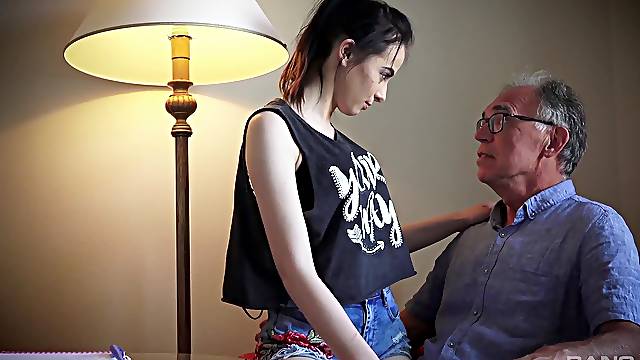
If both partners are above the legal age of consent, it doesn’t mean consent is implicit. Asking for consent and both people being on the same page is key in any healthy romantic relationship.
If you’re below the age of consent and an adult’s behavior is making you feel uncomfortable or unsafe, help is available. You can:
- Call the National Sexual Assault Hotline at 800-656-4673 for confidential, 24/7 support.
- Visit Stop It Now! for online resources or reach out to their helpline at 888-773-8368.
- Visit Childhelp for resources to handle and report abuse or to chat live with someone who can help.
Why does anybody want to date someone else? There are infinite possibilities.
The vulnerability of young girls has made the older-men-dating-younger-women stereotype a predatory one.
While it’s true that some men may consider younger women easy targets for manipulation or control, there are less sinister reasons an older man may be drawn to someone younger.
Sometimes it just happens. You fall in love with the person and overlook their age. Other times, it’s actually the energy, appearance, and life perspective of a younger woman that may be attractive to an older man. In some instances, the intention may not be a healthy one. Every case is different.
Ancestral practices
A 2020 large-scale replication study examined mate preferences across 45 countries. Researchers found that most men placed a higher emphasis on appearance when it came to choosing a partner.
The reason behind it isn’t necessarily vanity.
Primitive humans seemed to have selected mates based on reproductive success. Features like youth, symmetrical bone structure, and wide hips in females were viewed as signs of overall health and vitality, which would ensure species survival.
On some level, the ancestral and instinctual attraction to such features may remain in both Eastern and Western cultures, as noted by a large international study from 2020.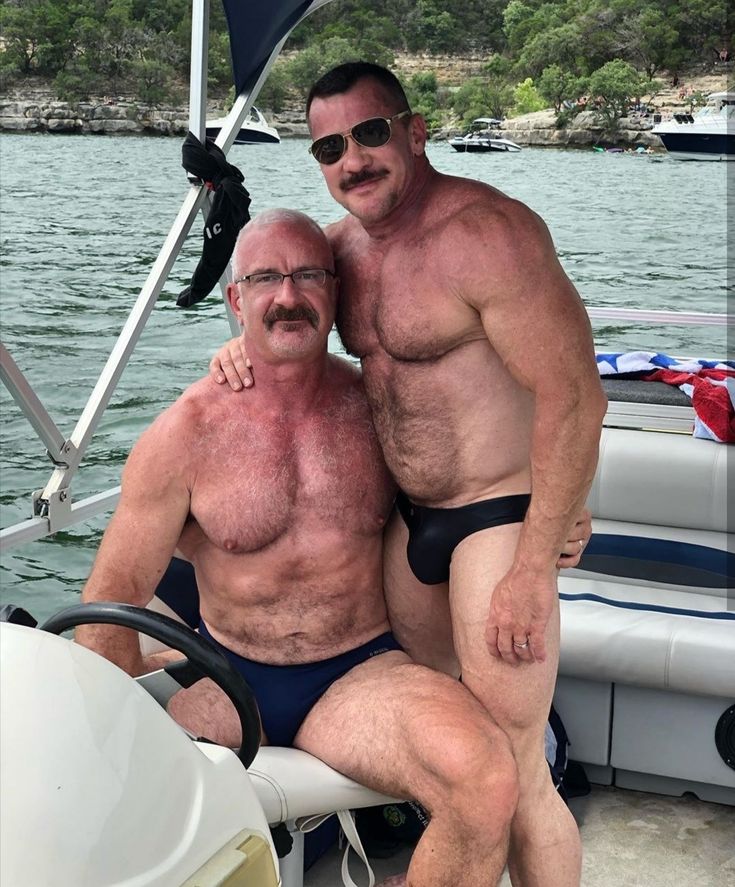
This could be a reason why men, in general, may be attracted to younger women.
Long-standing traditions
Stephanie Juliano, a licensed professional clinical counselor from Rio Rancho, New Mexico, points out women haven’t traditionally had the benefit of equality.
“Men initially had more privileges, and so it was not unheard of taking a younger partner to take care of, and on the other hand, a young woman leaving home was being taken care of both financially and socially,” she explains.
While the adult-child relationship dynamic has been denounced in some parts of the world, there’s still much work to do in that respect. It’s also possible that these practices have influenced dating culture and there may still be an undercurrent of older men dating consensual younger women based on wanting to be their provider.
Entering crisis mode
It’s probably one of the most discussed reasons for older men dating younger women: The midlife or identity crisis.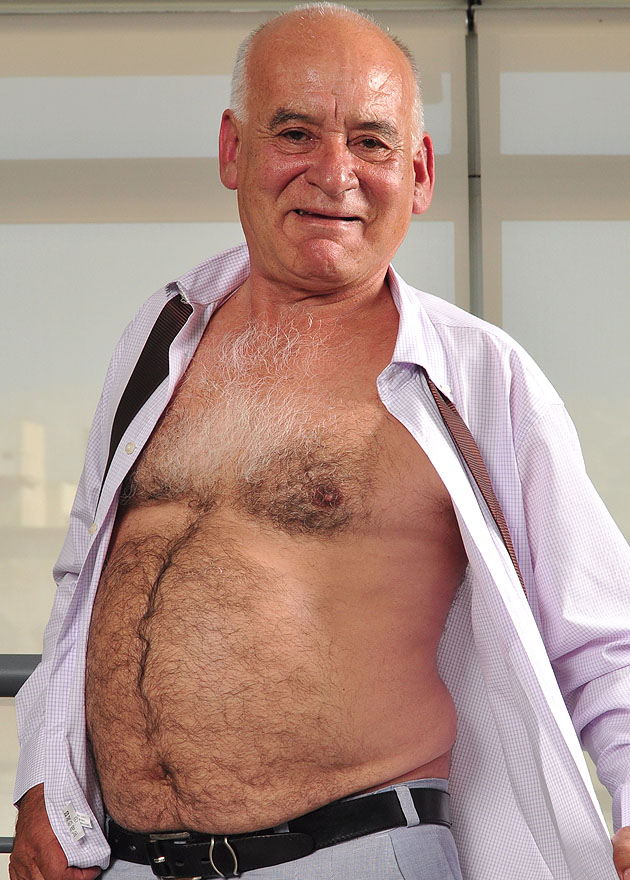
Do older men mentally resist aging by dating younger partners? Is the midlife crisis even real? There’s much discussion but limited research on the topic. Some argue that this is yet another stereotyped cliche that doesn’t have much proof behind it.
How old is “too old” when it comes to an age gap in relationships?
According to data accumulated over the course of 7 decades, in developed countries, the average age gap among heterosexual couples is 2 to 3 years.
In these relationships, the data indicates it’s more common for men to be the older partner.
Age gaps are rarely discussed until they’re considered “too big,” but there’s no hard rule about when an age gap becomes significant.
Reported satisfaction in a relationship may start to see diminishing returns if the age gap between partners is larger than 10 years, suggests an 80-paper review from 2016.
In misogynist cultures, young women dating older men may be often accused of being “gold diggers,” or just in the relationship for financial gain.
Research, however, shows that when it comes to establishing long-term relationships, the majority of women, of all ages, are typically interested in older men.
A large study of more than 12,000 participants in Finland found that most women prefer same-age or older male partners throughout life, while men, regardless of age, tend to prefer women in their 20s.
While women may also seek older men out of long-standing provider traditions, there are other reasons this matchup might be appealing.
Emotional maturity
Research suggests men take longer than women to reach mental maturity, making it reasonable for young women to feel more emotionally compatible and secure with older men.
The father complex
Young women who grow up with absent, emotionally unavailable, or abusive fathers may develop what’s known as the father complex.
The father or Oedipus complex isn’t a recognized disorder in the Diagnostic and Statistical Manual of Mental Disorders, 5th edition, text revision (DSM-5-TR), and it’s a controversial term.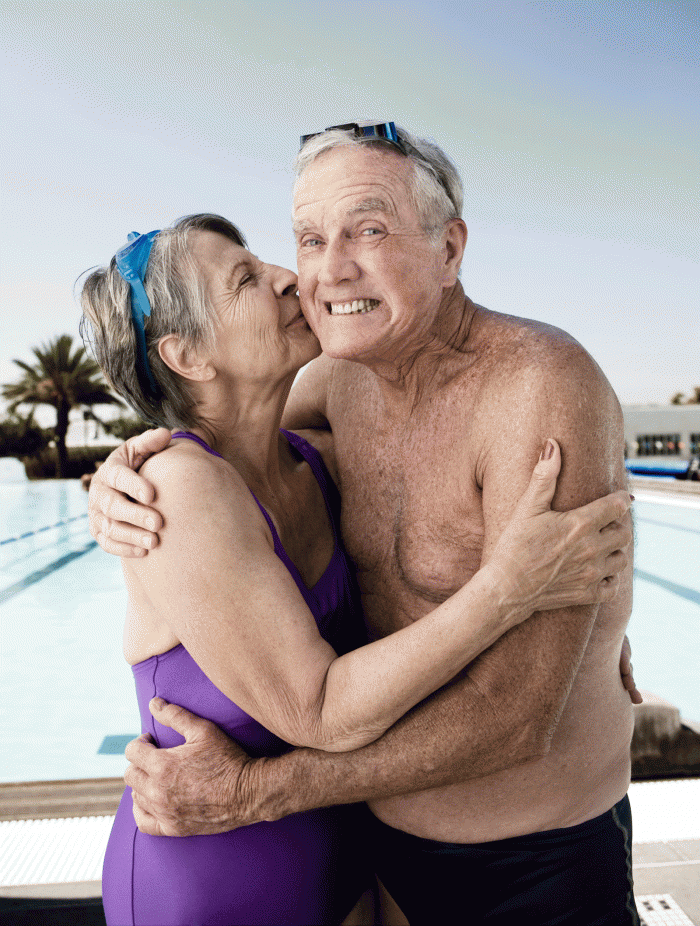 Originally a Sigmund Freud’s theory, the term and concept have been long controverted.
Originally a Sigmund Freud’s theory, the term and concept have been long controverted.
Initially, the theory described how children form a strong attachment with the parent of the opposite sex and start to compete for attention and love with parents of the same sex. This is part of the natural psychosexual development.
When a person stays psychologically stuck in this stage of development, they may experience challenges in adult relationships.
When it comes to younger women dating older men, some people refer to the complex as “daddy issues,” a gendered stereotyping term.
Only a mental health professional can accurately determine if a younger woman’s attraction to older men has roots in unresolved childhood conflicts.
What about older women and younger men?
A double standard may exist in some cultures that accept older men dating younger women. Older women dating younger men may not be seen so kindly, although it could be explained differently.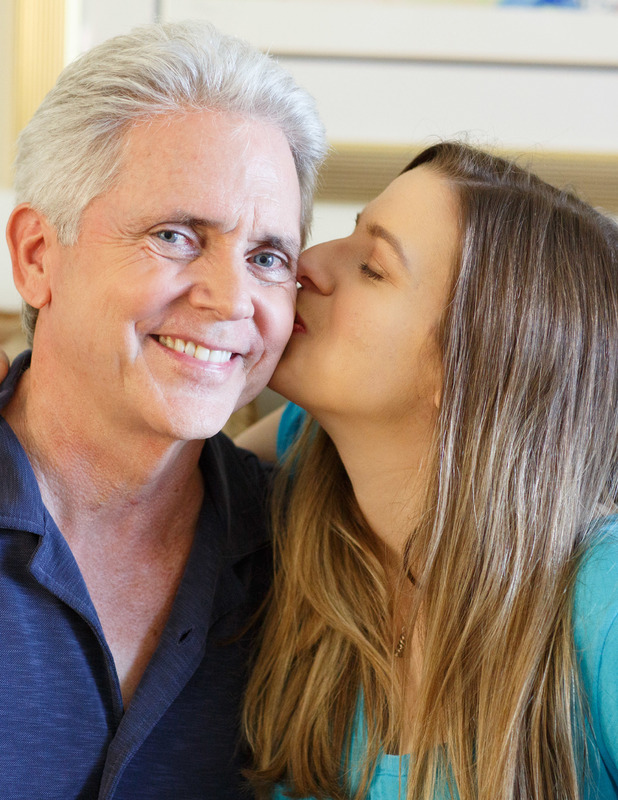
Mary Mimi Schultz, a licensed professional counselor from Houston, explains this is often because the component of vulnerability is missing from this dynamic.
“When a younger man dates an older woman, it is more accepted because she is not in the relationship for money, typically,” says Schultz.
In a chauvinist culture, an older woman may still be seen as the weaker one in the relationship, not the one taking advantage of a younger partner, which may happen to older men dating younger women.
When two people genuinely love one another and have built that love on commonalities, companionship, respect, and trust, a relationship can work — regardless of the age gap.
Patricia O’laughlin, a licensed marriage and family therapist from Los Angeles, says relationships with a large age gap may be wonderful opportunities for personal growth.
“There can be significant differences in beliefs between generations. It’s a real chance to learn how to consider multiple perspectives on an issue or experience,” she says.
Schultz adds these types of relationships also tend to have high levels of maturity, which can mean a lower chance of settling for less than ideal circumstances.
“Typically, an age gap difference means one is in it for the love and relationship,” she says.
Any relationship can face challenges, but research suggests age gaps like those in relationships between older men and younger women have been linked to:
Depression
As partners age, the older partner may not be able to meet the energy levels of the younger partner, or may feel inadequate.
Depression in older adults may also be linked to experiences unique to the age, like losing close friends and retirement, something a younger partner may not be able to relate to.
Infidelity and lack of relationship commitment
Although not a rule, it’s possible that younger partners may gravitate back toward people their own age, particularly if the older partner doesn’t have the same sex drive.
Infidelity isn’t exclusive to relationships with age gaps, though. As in any other case, trust and open communication are key to managing this challenge.
As in any other case, trust and open communication are key to managing this challenge.
Lower relationship satisfaction
Many factors can influence relationship satisfaction. With a large age gap, partners may experience stress or anxiety from:
- social stigma
- different priorities in life, or goals that don’t align
- power dynamics
- clashing social circles
- age-related health challenges
How to manage challenges
Experts cite communication as critical for the success of relationships between older men and younger women.
Juliano recommends open communication about big life questions, right from the start.
“Are there common interests in life goals, religion, family, where do you see yourself, what do you want in the next 5, 10, 15+ years?” she suggests you ask yourself.
O’Laughlin explains that figuring out these questions and creating plans to address them can strengthen your relationship and decrease resentment and conflict.
If you’re unsure where to start, a relationship counselor can help you and your partner identify areas of concern and possible solutions.
Why would older men date younger women and vice versa? As with any other relationship, there are many factors involved. Emotional security, maturity, common life perspectives, physical attraction, and chemistry may be involved. Instincts and culture may also play an important part.
It’s also possible in some cases that unresolved relationship challenges with father figures or traumatic experiences may be at play. Only a mental health professional can determine if this is the case.
Having a big age gap doesn’t necessarily mean your relationship is bound to fail. Open communication about life goals and expectations can help you and your partner build a foundation of trust and respect.
“Women and men have very different old age” How age affects love and quality of life: Cinema: Culture: Lenta.ru
Summing up the outgoing year, Lenta.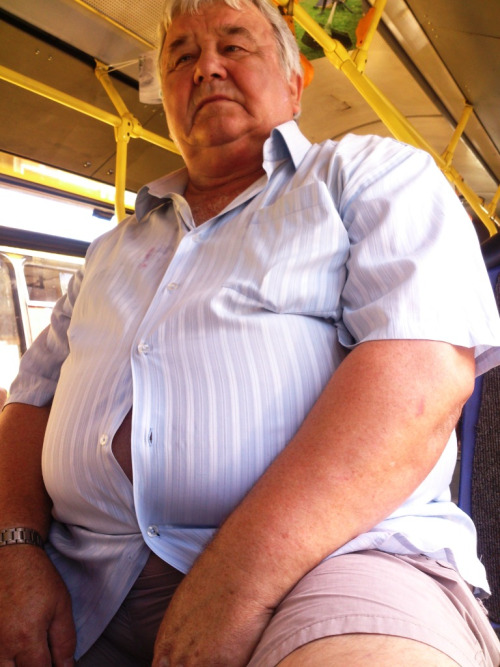 ru compiled a list of the best publications of 2016. This text is one of them. Writer Lyudmila Ulitskaya, poet and essayist Dmitry Vodennikov, poetess, actress and singer Vera Polozkova and poet Alexander Timofeevsky (his lyrics to the song “Let Pedestrians Run Clumsily Through Puddles…” seems to have already passed into the category of folklore) met with the public and talked about their attitude towards old age. About what aging is, how it is seen by young people and how it is accepted by those who are already old? How is old age and old people treated in society? What is mature love? Is a big age difference between spouses acceptable? How to do so, so as not to become a burden for loved ones? This is the first meeting of the project "Conversations with writers about old age" in the framework of the IV National Conference "Society for All Ages". The conversation was led by literary critic Alexander Gavrilov. Lenta.ru offers a transcript of the meeting.
ru compiled a list of the best publications of 2016. This text is one of them. Writer Lyudmila Ulitskaya, poet and essayist Dmitry Vodennikov, poetess, actress and singer Vera Polozkova and poet Alexander Timofeevsky (his lyrics to the song “Let Pedestrians Run Clumsily Through Puddles…” seems to have already passed into the category of folklore) met with the public and talked about their attitude towards old age. About what aging is, how it is seen by young people and how it is accepted by those who are already old? How is old age and old people treated in society? What is mature love? Is a big age difference between spouses acceptable? How to do so, so as not to become a burden for loved ones? This is the first meeting of the project "Conversations with writers about old age" in the framework of the IV National Conference "Society for All Ages". The conversation was led by literary critic Alexander Gavrilov. Lenta.ru offers a transcript of the meeting.
Alexander Gavrilov: In a world where there are more and more adults, society is not very clear what to do with older age. The fashion industry is fighting for new standards of beauty. Medicine conquers all new diseases and promises us that we will live long. Transhumanism promises that we will all become robots and will not know any sadness at all. Meanwhile, the traditional concept of old age: an old person is someone who digs in the beds and sits with their grandchildren, is obviously slipping today, and the new concept of old age, at least in Russian society, is very poorly spoken.
The fashion industry is fighting for new standards of beauty. Medicine conquers all new diseases and promises us that we will live long. Transhumanism promises that we will all become robots and will not know any sadness at all. Meanwhile, the traditional concept of old age: an old person is someone who digs in the beds and sits with their grandchildren, is obviously slipping today, and the new concept of old age, at least in Russian society, is very poorly spoken.
Lyudmila Ulitskaya: In fact, we will start this conversation, but we will not finish it. Because this topic is only just beginning to be spoken out. Let me split the problem into two parts. Our state has a completely ugly attitude towards the elderly, but this is not what we are considering today. Rather, we consider the psychological state of a person who voluntarily or involuntarily, wants or does not want to, but is getting old, and each segment of life has its own tasks.
For example, I don't think at all that youth is the best time of life.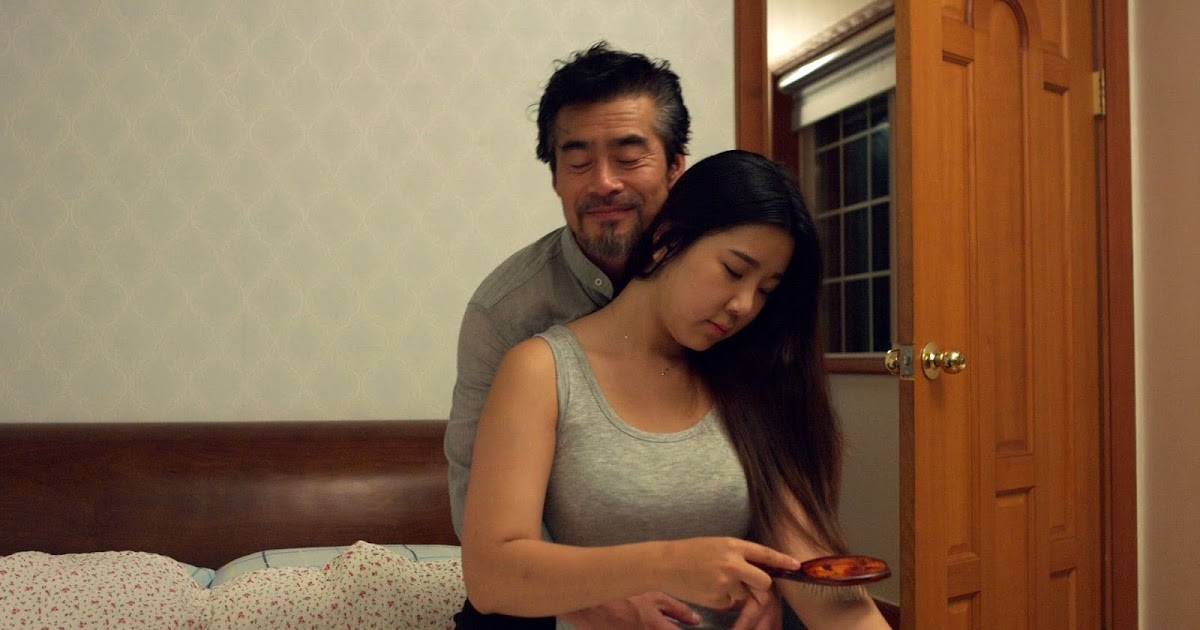 Youth is difficult and uncomfortable. Until you get used to it, you need to spend a lot of effort. Now, at my age of 73, I am much more comfortable to exist than in my younger years, when I fluttered and flew. This is an extremely important point - that we must learn to live well at the age that we have today, but still prepare for old age.
Youth is difficult and uncomfortable. Until you get used to it, you need to spend a lot of effort. Now, at my age of 73, I am much more comfortable to exist than in my younger years, when I fluttered and flew. This is an extremely important point - that we must learn to live well at the age that we have today, but still prepare for old age.
It is very difficult to prepare for it - when you see badly, hear badly, think badly - it is very difficult. This is a daily task for me, because I am 73, my husband is 82. We are two rather old people. Therefore, we are always determined not to poison each other's life and to accept such a form of existence in which we say to ourselves: yes, we have limitations, and we will not do this today. Moreover, I must say, it is very difficult for my husband, as a former superman, because he is used to being very strong. No one in the army could beat him. And now he is an old man, a little one.
What can we do to ensure that our own aging does not become depressing for us, for those around us, does not impose any super-obligations on them - these are all extremely important things, we need to talk and think about them. Because if we do not discuss this, then we will definitely not resolve this issue.
Because if we do not discuss this, then we will definitely not resolve this issue.
Alexander Gavrilov: When we announced the composition of the speakers, many of your readers, perhaps not too attentive, reacted in amazement ...
Vera Polozkova: The most popular comment on my participation was: first live. (laughing)
Alexander Gavrilov: Nevertheless, the theme of old age, the theme of the end of life lives on in your poems. Why are you thinking about it? And what do you think about it?
Vera Polozkova: Moreover, my last program, which is being read and played everywhere now, is amazingly all about old age. And about leaving. And I talk about it as a fairly natural thing that does not plunge into horror and despair, but on the contrary, fills life with completely different sensations and colors. If we lived forever, we would be pretty bastards, I think. This is how we protect what we have. We know that this is not eternal, we appreciate it, because it tends to leave us.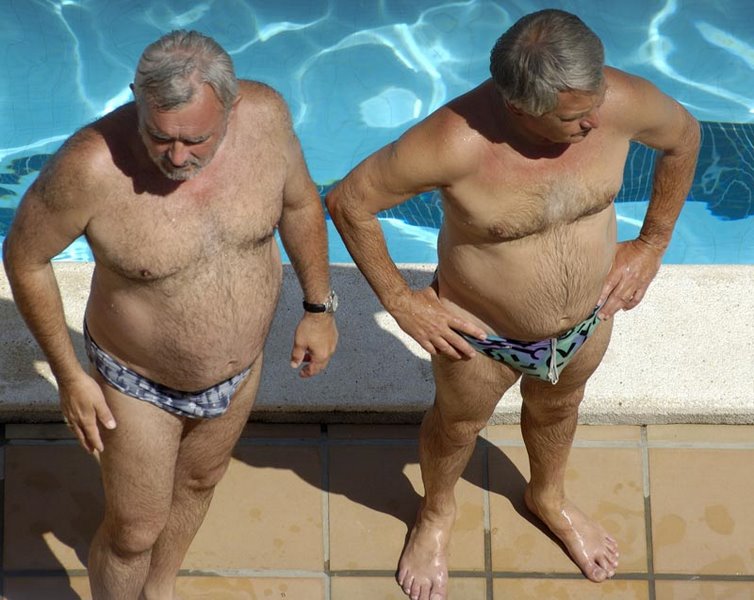
I have always felt much older than my friends. I'm just a late child, my mother is the same age as Lyudmila Evgenievna. She is a very free-spirited, deep-thinking, feeling-hungry, experienced person who is forced into the frame of a 70-year-old grandmother by some social focus. They talk to her like a grandmother. They say: “What do you expect? You are 70 years old. What would you like?" And the reason I'm here is because the term "living age" pisses me off. I want it to be gone.
I want there to be no situation where we treat mature people as some kind of social burden. Now the main message is this: “We have so many old people, there are more of them every year, and how can we continue to build the economy?” And this is an incredible resource! We don't even use half of it. We are losing our old people as full-fledged objects of socialization. Only because they can't keep up with social networks, gadgets and everything else.
Vera Polozkova
Photo: Maxim Blinov / RIA Novosti
Alexander Gavrilov: So Polozkova was ordered to live, and you, in excellent poetic form, have come to this wonderful age point. What is it like?
What is it like?
Alexander Timofeevsky: Well, what a secret it is! (laughing) I won't talk about it. I'll tell you about some things. What I'm most afraid of right now is the banal. I'm afraid to repeat Lebedev-Kumach, who said: "The young are dear to us everywhere, the old people are honored everywhere." This is a very serious topic. And these platitudes would like to be avoided.
I was very lucky in this life - I met old wise people. Great people! I was lucky to know Grigory Pomerants at a young age. If you have been to this man's lectures, if you have read his books, then you can imagine what a grandiose mind this man is. And here I was with him a week before his death - the freshness of the mind was completely preserved. Mind brilliance! The greatest erudition and a deep understanding of what needs to be done in order not only for the elderly, but for all of us to save, save, save our souls.
Alexander Gavrilov: Dmitry, do I understand correctly that for you this topic is important, big and constantly in the circle of reflection?
Dmitry Vodennikov: Terrible events passed us by. We didn't survive the war. Our generation experienced local wars, there was Afghanistan, something else, but directly, so that it would go on in your street, in your hometown, this is not. We don't have any other things that people constantly face. By and large, we lead a philistine life. And we have nothing that can shade us. If everything is flooded with sunlight and there are no shadows, it's scary. In order for the world, life, sensations in this life to be multifaceted, you must have a shadow side, you must have a shadow from the leaves. Here, in fact, the theme of death gives us this.
We didn't survive the war. Our generation experienced local wars, there was Afghanistan, something else, but directly, so that it would go on in your street, in your hometown, this is not. We don't have any other things that people constantly face. By and large, we lead a philistine life. And we have nothing that can shade us. If everything is flooded with sunlight and there are no shadows, it's scary. In order for the world, life, sensations in this life to be multifaceted, you must have a shadow side, you must have a shadow from the leaves. Here, in fact, the theme of death gives us this.
And then there was the wonderful poetess Elena Schwartz. She is generally wonderful, and she has such short poems:
How shameful it is to grow old -
I don’t know why,
After all, I didn’t give a vow
Don’t go into the darkness of the night,
Don’t slip into the darkness of the basement,
Shine my gray hair,
I and I did not promise myself,
That I would be an eternal child.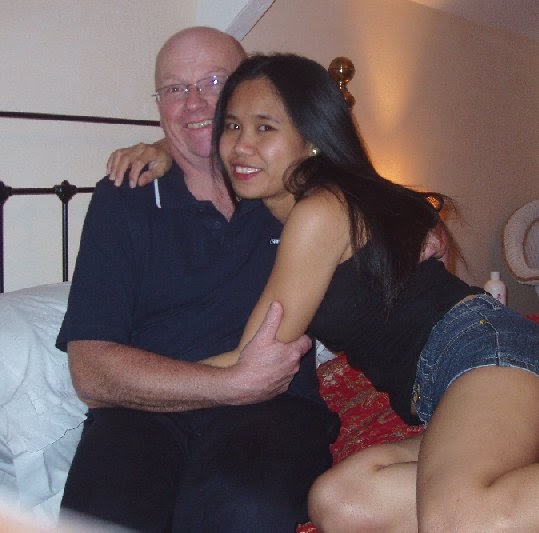
But all the same, I feel awkward involuntarily,
The fading is obvious to everyone.
I know why it hurts so much,
But why so ashamed, ashamed?
Only the last line makes the poem stand out, because before that, nothing special. And it's amazing that only a woman could poke, make such an injection and explain why aging is so terrible. Not because it hurts, but because it's embarrassing. And I think that's one of the things that all the people that are here are thinking about. Well, except, of course, Verochka Polozkova, because she is eternal! (laughing) And the youngest here!
Alexander Gavrilov: This topic is terribly interesting. I, however, do not quite agree that Schwartz explained why she is ashamed. She rather pointed it out - it's a shame, and this is already a big deal, but why ...
Dmitry Vodennikov: Because “fading is obvious to everyone”. Because you are standing, as in the square. Elena Schwartz just explained: you can’t do anything with yourself. You can turn on the light, like Julia Lambert, the lamp in the back, but sooner or later a person will bring their face closer to you and see your crow's feet, or maybe see something else.
You can turn on the light, like Julia Lambert, the lamp in the back, but sooner or later a person will bring their face closer to you and see your crow's feet, or maybe see something else.
Dmitry Vodennikov
Photo: vodennikov.ru
Alexander Gavrilov: Lucy, in your work there is a long series of literary old women, images of old women. I remember how Medea became such a big deal for me. I accepted the novel very vividly, thank you very much for it! (applause) When you started writing these old women, you were still quite a young woman. Why were they so important to you? And why were these old women not ashamed of their old age?
Lyudmila Ulitskaya: This is generational. Our parents never said anything. They didn't talk when we were little or when we were older. These were people of fear, which eats very deeply. We eventually figured out why they didn't talk. Moreover, we even found out what exactly they did not say. So, at that time the old women were talking.
And I had a whole series of, as I called them, old girlfriends, indeed, from a young age I was drawn to them. The last old woman was not so much older than me, it was Irina Ilyinichna Ehrenburg, born in 1911, and in terms of age she was still not so ancient, this is not the end of the 19th century, like other old women. And it was an endless gem!
And now, when life, in general, has passed, at some point I discovered that I myself became an old girlfriend for my young friends. This is changing slightly characteristically, because it is easier for us to talk, because we have this age difference, the sum of these years is not as sharp now as it was then. In addition, some of these old girlfriends were Christians, and my entry into this topic was due to them.
And probably, at a memorial service for one of my old girlfriends, when I entered the church, I heard a litany, which greatly changed my worldview. Well, it then collapsed too, but it was extremely important nonetheless.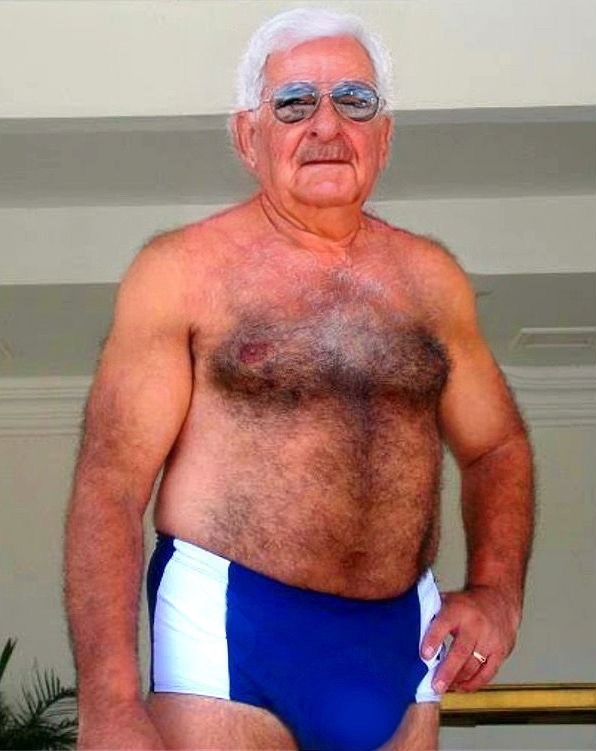 Christian death, peaceful, painless, not shameful. And this, perhaps, from this range of Christian messages was the first that I heard. My relatives began to die quite early ... In general, the first death that I encountered was amazing. My great-grandfather was dying, and it was such a death of a righteous man, so noble and so worthy! I was 7 and he was 93. And I have this picture, and over the years it does not blur at all, but on the contrary, it becomes more significant for me.
Christian death, peaceful, painless, not shameful. And this, perhaps, from this range of Christian messages was the first that I heard. My relatives began to die quite early ... In general, the first death that I encountered was amazing. My great-grandfather was dying, and it was such a death of a righteous man, so noble and so worthy! I was 7 and he was 93. And I have this picture, and over the years it does not blur at all, but on the contrary, it becomes more significant for me.
Lies on a large mahogany bed, on which he has been sleeping alone for a long time, my great-grandfather, a small, white old man. The whole family is around him. And these were indeed his last minutes of life. I'm from the street, I'm standing in a fur coat. And they say to him: “Grandfather, grandfather, look, Lyusenka has come!” I was the only great granddaughter. And he hardly opened his eyes, found me and said: “Lyusenka, a good girl. Everything will be fine!" And that's it.
Lyudmila Ulitskaya
Photo: Nikolai Titov / Russian Look / Globallookpress.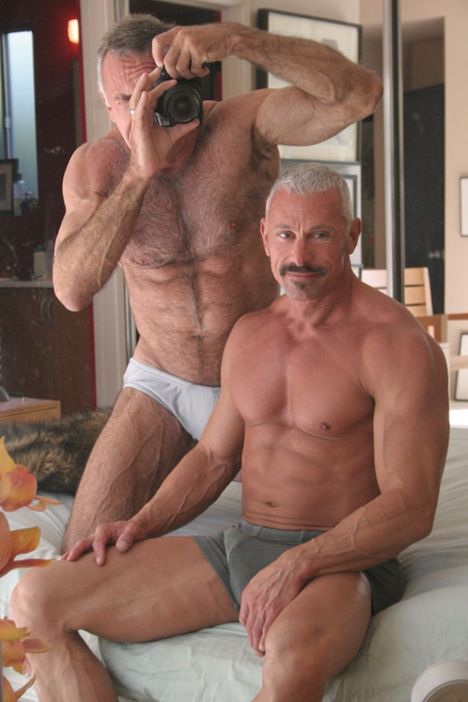 com
com
We are all biological beings, and we are actually afraid not so much of death as of pain, and this picture, it reconciled and changed me for many years something in my optics. In this sense, I am a rather happy person, because I have always been lucky with old women, and it was good with them. I have received a lot from them. Received a lot! And now I, probably, to some extent, repay the debt.
Alexander Timofeevsky: But I really want to answer Dmitry. Briefly. It never occurred to me that one could be ashamed of old age, Dimitri. I am very much ashamed, I am ashamed of my life. I would like to live it again and avoid those monstrous mistakes that I made in this life. But it never occurred to me that one could be ashamed of old age. (applause)
Alexander Gavrilov: A note came from the audience: “Love in old age — what is it like?” (laughing)
Ludmila Ulitskaya: You know better, better! (applause) I'll tell you what I'm doing now.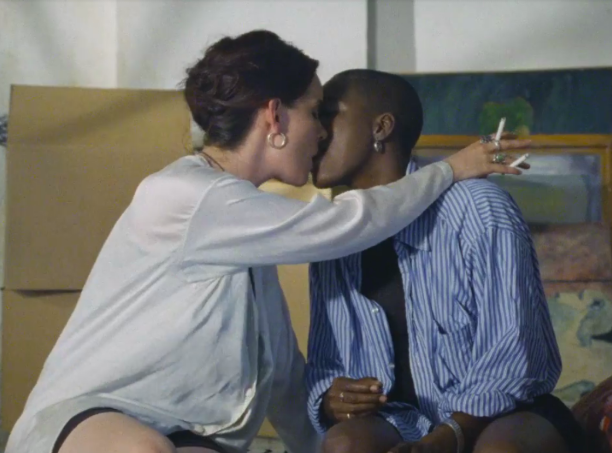 The fact is that every time I finish a long novel, and this happened relatively recently, I say: that's it, I've finished, we close the book and live a different life. And I have a lot of diaries, since 1977 they are practically continuous. Well, a lot! And I decided to re-read them and see what's there. It turned out absolutely amazing!
The fact is that every time I finish a long novel, and this happened relatively recently, I say: that's it, I've finished, we close the book and live a different life. And I have a lot of diaries, since 1977 they are practically continuous. Well, a lot! And I decided to re-read them and see what's there. It turned out absolutely amazing!
The fact is that before I married my beloved husband, and this happened 20 years ago, for 20 years we were in a state of a terrible, nerve-wracking, nightmarish affair. Our relationship is 40 years old, and it was 20 very difficult years of my life. And my first notebooks, they approximately go under the motto: “he came in - I turned pale, he went out - I blushed ...” (laughs)
It's just a nightmare! And really ashamed, embraces despair from his own idiocy. And I must say that over the years we have both become wiser. In general, he is smarter than me, it was easier for him, it was more difficult for me. But nevertheless now, when this foam of terrible sublime love has passed, much more human relations have become. We have become much more human.
We have become much more human.
In addition, but this is a separate happiness, it happened so by chance that we are interested in each other. In addition to the fact that a lot of interesting things happened between us, in addition, we turned out to be interesting to each other. And it was already a pleasant surprise, because the human content, depth, turns, many details, extremely important, you begin to understand later. Happiness when there is something to understand. Therefore, I think that it is very ... Everything happens very well in old age.
Dmitry Vodennikov: What about sex? (laughing)
Lyudmila Ulitskaya: Well, if the question is so sharply posed, well, I answer.
Dmitry Vodennikov: Everyone is here, don't be shy!
Lyudmila Ulitskaya: At some point in my life, well, that's enough already... about 10 years ago, let's say, I said: “Listen, you know, I'm tired. Come on… let’s close the shop.” In general, you know, it was a voluntary consent.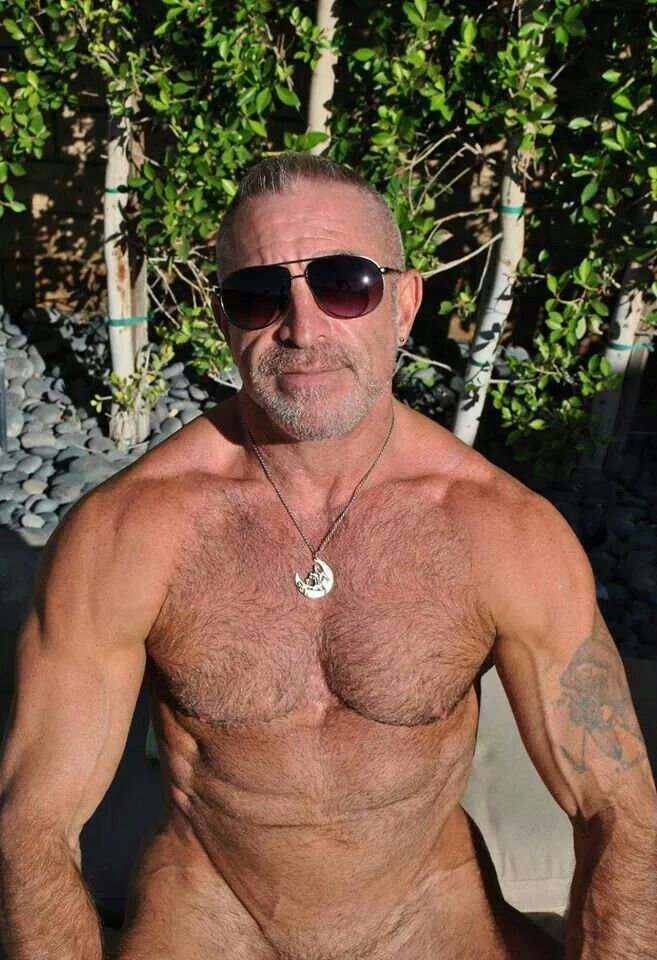 Moreover, I must say that once in my youth, when this side of life was extremely occupied, we both went through a rather difficult path, and the church really interfered with life, I must say. Because I was married, he was… well, semi-married, shall we say, and there were a lot of complications. We were always drawn to each other and so on, and at some point the theme of Peter and Fevronia arose, that, of course, we cannot live apart, but we will live, like Peter and Fevronia, in neighboring cells. We came up with such a refrain ... In general, I think that we probably built this situation wonderfully, and we are very good. (applause)
Moreover, I must say that once in my youth, when this side of life was extremely occupied, we both went through a rather difficult path, and the church really interfered with life, I must say. Because I was married, he was… well, semi-married, shall we say, and there were a lot of complications. We were always drawn to each other and so on, and at some point the theme of Peter and Fevronia arose, that, of course, we cannot live apart, but we will live, like Peter and Fevronia, in neighboring cells. We came up with such a refrain ... In general, I think that we probably built this situation wonderfully, and we are very good. (applause)
But you are a provocateur, Dmitry, of course, a terrible one!
Vera Polozkova: Let's ask. Dmitry, how are things with you in maturity? (laughing)
Dmitry Vodennikov: No way! Very bad, very! Didn't expect that, did you, Vera? Did not work out? Ah-ah-ah…
Ludmila Ulitskaya: They were going to talk about old age! (laughing)
Vera Polozkova: No, I'll tell you what I'm talking about. It seems to me that in general we touched on different topics in our difficult life. But we do not touch on the fact that women and men have very different old age. And we do not touch on a huge number of social agreements and stereotypes, and proverbs that “a beautiful woman dies twice”, about the incredible stigmatization of old age, about an absolutely totalitarian beauty industry. We are not talking about the fact that girls begin to inject themselves with Botox so that they do not have transverse wrinkles at the age of 27, and this is normal, and cosmetologists advise doing this. And these are the monstrous horrors of old age, which are really more feminine than masculine.
It seems to me that in general we touched on different topics in our difficult life. But we do not touch on the fact that women and men have very different old age. And we do not touch on a huge number of social agreements and stereotypes, and proverbs that “a beautiful woman dies twice”, about the incredible stigmatization of old age, about an absolutely totalitarian beauty industry. We are not talking about the fact that girls begin to inject themselves with Botox so that they do not have transverse wrinkles at the age of 27, and this is normal, and cosmetologists advise doing this. And these are the monstrous horrors of old age, which are really more feminine than masculine.
Because, excuse me, men are fertile all their lives practically. A man can have a child at 72, and this will not surprise anyone. It is believed that women are beautiful as long as they are sexy. And they are women as long as they are sexy. And it turns out that for a woman, old age is the moment when you can no longer have children and cease to be a sexual object. And it's not like that at all.
And it's not like that at all.
We are not talking about incredible 50 year old and 60 year old beauties. Yes, and again we don't touch things like, for example, the social contract that a very grown man with a very young girl is nice and accepted, but a grown woman with a young man is funny, ridiculed and stigmatized. And you can’t, if you are older than a certain threshold, it’s kind of like spoiling a young man’s life by the fact that you have a relationship with him. Here's how it's presented.
And in the press until now, in 2016, we read in this disgusting, ridiculing tone about the affairs of adult women with young men: they say, where are you dragging him, you won’t give birth to him ...
In Western culture, these are already relics of the past . You will make the French laugh if you tell them. They have it generally. I know a huge number of couples with a wide time spread, and they all do not worry about their age. But in Russia, if a woman is 28, she is old-bearing. I don't understand what we are talking about...
I don't understand what we are talking about...
In Russia, these are two very different old age - male and female. And something needs to be done about it, you can’t just be silent!
Alexander Timofeevsky: I want to tell you about my love. Despite the fact that I am 83 years old, she does not go anywhere. In general, I had several wives, it happened, well, such a character, and then fate.
Alexander Timofeevsky
Frame: YouTube video / Mayorova Lyubov
My first wife and mother of my eldest son, whom Dmitry should know, Sasha Timofeevsky, his mother died at 23. With my last wife, Natasha Dyakova, I have been living for 30 years. The beginning of our love was great. She is beautiful even now. Natasha is my friend, she is my editor, she is my co-author, she is my assistant in all my creative activities. 90 percent of all my poems are dedicated to her. But, unlike Lucy Ulitskaya, the opposite is true. In the sense that right now we have disputes precisely because this is creativity.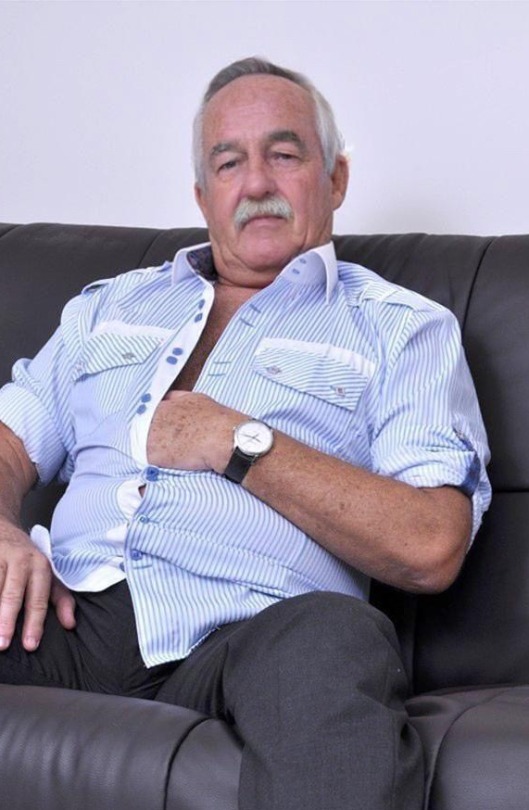
She says: “You have to write like this! Throw out the snot!” - “My God, yes, this is my most important phrase!” And it almost comes down to a fight! But when creative affairs step aside, I am ready to kiss the footprints of this woman. She is wonderful! (applause)
And one more thing about old women. The fact is that I was lucky at a young age, when I was 20, 25, 30 years old, to meet beautiful Russian old women. They are wonderful! They were beautiful to me, because their spiritual beauty, their masculinity, their ability to completely impulsively perform heroic deeds is different from our male deeds.
A man thinks: if I do something like that now, I'll get a turnip, and in general there may be big troubles, they'll even drag me to the devil knows where... But a woman intuitively does absolutely incredible things, and this heroism of her constantly arouses admiration in me!
And so I told you about Grisha Pomerants. And how wonderful is his companion, wife, poetess Zina Mirkina, who has retained both her brilliant talent, and she is a Chrysostom, she lectures superbly.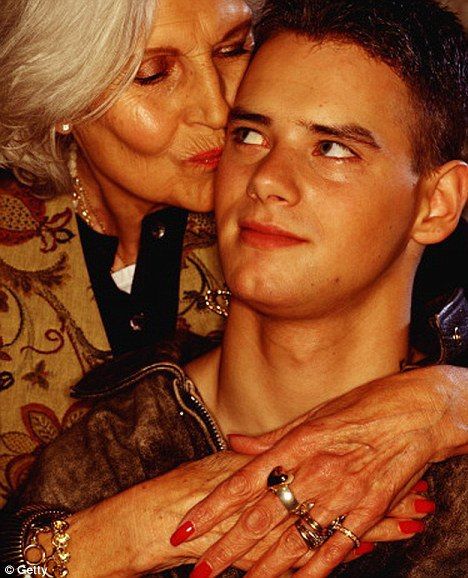 She is smart, courageously survived a lot of illnesses, the recent death of her husband, and still remains a heroine. And, thank God, I managed to see a lot of such women. (applause)
She is smart, courageously survived a lot of illnesses, the recent death of her husband, and still remains a heroine. And, thank God, I managed to see a lot of such women. (applause)
Dmitry Vodennikov: I wanted to talk about beauty. I once saw a stunningly beautiful woman. It was in Paris. I was walking through some district, I don’t remember which one, and suddenly I saw her. She was obviously old. I don’t really like this hypocrisy when we actually attributed old age to some already completely transcendental age, when old people simply don’t appear anymore, there are 90 years old, and maturity is up to 60. It seems to me that maturity is up to 50.
Alexander Timofeevsky: Dima, I'm sorry, my wife forbade me to use the word "old man" in my speeches.
Dmitry Vodennikov: And I don't have a wife, and no one spoils my life. (laughing) I like the word "old woman" very much. And now she was an amazing old woman! She was very beautiful. She was very thin. I was walking with my friend and she heard us speaking Russian. And it turned out that she was a Russian ballerina. That was beauty! Not a single girl, whom I now see a lot, could compete with her, because she had a ballet staging of the body and she still had some kind of inner glow, not dictated by anything - neither croissants, nor coffee, not living in Paris ... And I really would really like to, if I grow old, then grow old in this way.
She was very thin. I was walking with my friend and she heard us speaking Russian. And it turned out that she was a Russian ballerina. That was beauty! Not a single girl, whom I now see a lot, could compete with her, because she had a ballet staging of the body and she still had some kind of inner glow, not dictated by anything - neither croissants, nor coffee, not living in Paris ... And I really would really like to, if I grow old, then grow old in this way.
Vera Polozkova: My mother, she will be 70 this year, she will have an anniversary. She went through a big story, a very difficult one in her life, and I say, "Look, well, you can completely relax." Because at some point you can stop watching so closely what impression you make and start getting the most out of what is happening. I have been very careful about this topic. And my husband is a very direct person, he said: “In general, after 70 I don’t understand what you are afraid of, Alla Sergeevna? You can live to the fullest!”
Alexander Gavrilov: It is surprising that the story of Vera is wonderfully connected with a note that came from the audience: “In his column, Vladimir Pozner cites a letter from his friend, the essence of which boils down to the following: old age is a gift.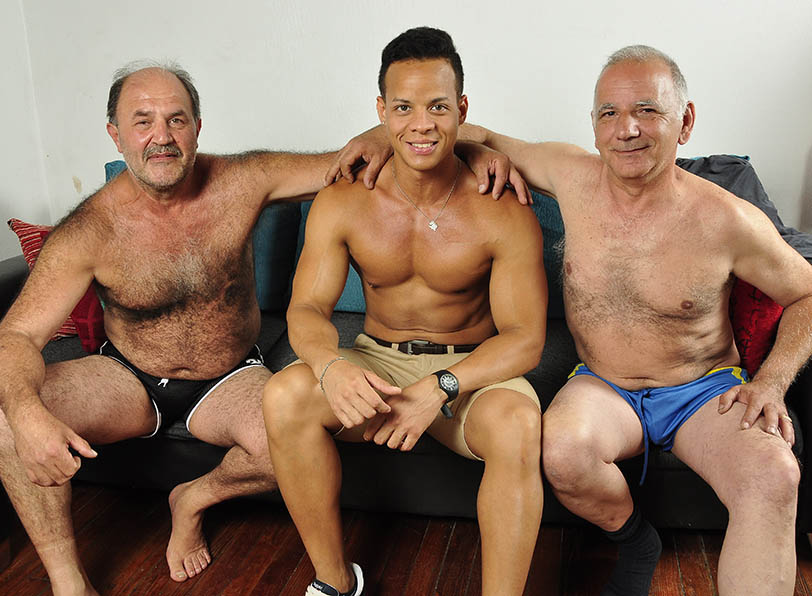 Yes, the reflection in the mirror is sometimes frightening, yes, I am forgetful, but old age has freed me. I like the person I have become. I even earned the right to be wrong. And yes, I will eat sweets for dessert every single day!” And the author of the note writes: “It seems to me that old age and aging should be separated.” How do you think?
Yes, the reflection in the mirror is sometimes frightening, yes, I am forgetful, but old age has freed me. I like the person I have become. I even earned the right to be wrong. And yes, I will eat sweets for dessert every single day!” And the author of the note writes: “It seems to me that old age and aging should be separated.” How do you think?
Alexander Gavrilov
Photo: British Council Facebook page
Ludmila Ulitskaya: In fact, there is nothing good. This is a process that you live every day. You start the morning by doing exercises, because if you don’t do it, then the bones creak. I hate it, but I do it anyway, just to keep moving. Three years ago I decided to buy a motorcycle and chose a good motorcycle for myself, I got my license sometime in my youth. And I took it off the brake and couldn't move it. And at that moment I was very upset, because it was one of the few signs of the limitation of old age - I can no longer ride a motorcycle. And these restrictions are catching up every year, so to speak.
Aging doesn't happen every year, it happens in chunks. You live, you live, like nothing, and then three or four years pass - boom, you take a step. Here it is not a gradual thing, it is such a gradual thing, I would say. And every time I point it out, it's frustrating.
In general, there is nothing good in old age. And there is absolutely no poetry. It's better to be young. But you have to put up with it. We must accept it.
Alexander Timofeevsky: Lucy, you said that love is better at this age! (laughing)
Lyudmila Ulitskaya: No, I'm better now than when I was young, that's for sure. But here's the process... Regardless of my physical condition, I now feel better in space. First of all, I did learn a few things. I must admit that it seems like you make the same mistakes 150 times, you spin in the same place, but in the end you still learn something.
I didn't know how to enjoy life! My mother was an exceptionally gifted person in this sense, she woke up with a smile! She turned on three sound sources at once, jumped, did exercises.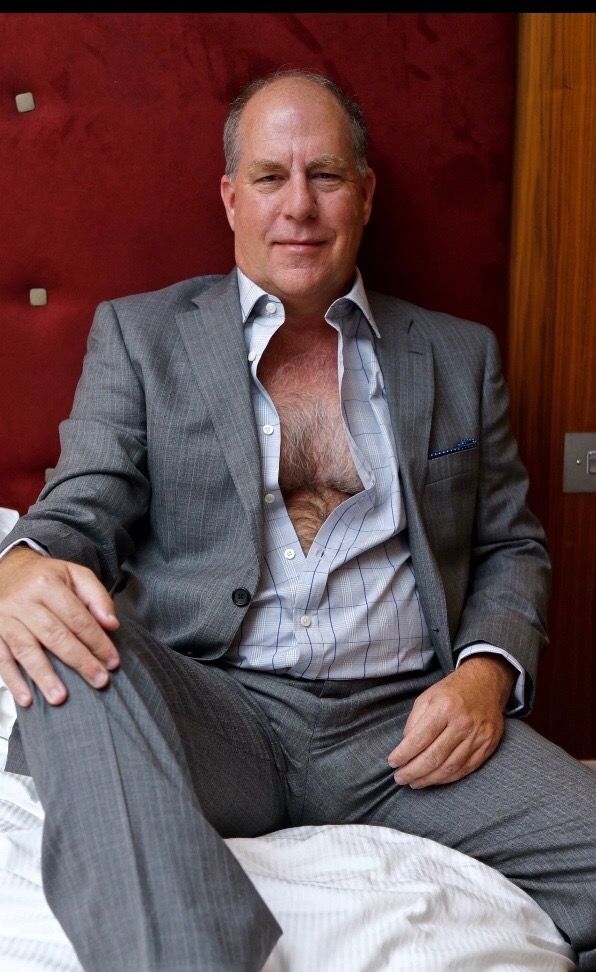 And I, starting at six in the morning, slept and got angry. Because - boom-boom-boom, she jumps there ... And she always put it on my face: “Look, you have an orange - you need a banana, you have a banana - you want an apple. And I feel so good with my pickle!” And this is, in fact, a warehouse of character. And the moment you start to understand it, you can already work with it.
And I, starting at six in the morning, slept and got angry. Because - boom-boom-boom, she jumps there ... And she always put it on my face: “Look, you have an orange - you need a banana, you have a banana - you want an apple. And I feel so good with my pickle!” And this is, in fact, a warehouse of character. And the moment you start to understand it, you can already work with it.
This is very important to understand, and I realized at some point that I don't know how to enjoy life. I let it go through me and slowly went in the direction of joy. Here I was helped by great luck - I got cancer. It was six years ago. And it completely removed the film from the eyes. That's when this feeling arose that this hill, flower or tree ... I'll hold it a little longer, hold it - and it will all end. And suddenly I was so happy that all this is still there! And therefore, oddly enough, this disease has moved me very much towards accepting life. Therefore, I expect some more surprises from life, and maybe something else interesting will appear.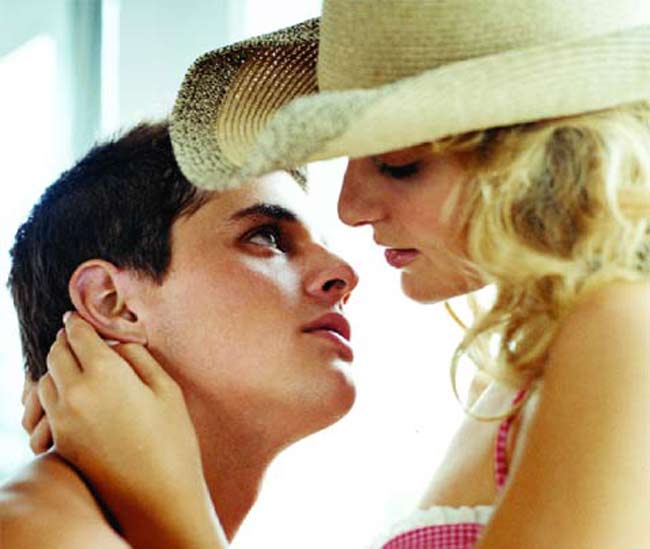
Also, I'm actually a careless person, and that helps me too. Once upon a time in my younger years, I was very busy with the fact that I was building a worldview. And it took years. I read books ... Now I read my diaries and think: God, why did I read Dr. Steiner from cover to cover? It could have been much faster to figure it all out.
But there came a moment when I realized that I don't care about a whole worldview, I care about today. That is, we went quietly towards Buddhism, Zen. And I must say that this is a good recommendation - to take off serious tasks a little and be a little more, well, more careless. I tell myself this because I didn’t have it, and now, in my old age, it appears in me. I think this is the biggest achievement I have ever had in my life. (applause)
Lyudmila Ulitskaya
Photo: Evgenia Novozhenina / RIA Novosti
Question from the audience: I want to ask a question, for which, in fact, I came here. When I was sitting in the hall, I conducted a blitz survey among the neighbors: why did you come here? Are you interested in the authors or interested in the topic? Most of the girls and women who sat next to me said: of course, the authors, they are such cool, great people! And it was the topic that interested me. Because no one talks about it usually. And for myself, I discovered five years ago that I had grown old, that I was bald. And somehow I started to deal with it. And here, in fact, the question is: advise what to do with it, how to live on? (laughter, applause) How to age gracefully?
Because no one talks about it usually. And for myself, I discovered five years ago that I had grown old, that I was bald. And somehow I started to deal with it. And here, in fact, the question is: advise what to do with it, how to live on? (laughter, applause) How to age gracefully?
Vera Polozkova: Can I break the rules a little and ask my close friend Sasha Gavrilov to tell a story about his outstanding friend for 94 years? How did the meeting with him change Sashino's idea of what lies ahead for him?
Alexander Gavrilov: I'm sorry that the topic of our conversation is designated as a conversation with writers about old age. And in my life there was one conversation that struck me with a writer about old age. I met the Bulgarian screenwriter, novelist, director and documentary maker Anzhel Wagenstein, whom all of Bulgaria, from Todor Zhivkov to people on the street, calls Jackie. And I was offered that he take part in one Moscow festival, the program of which I was involved in.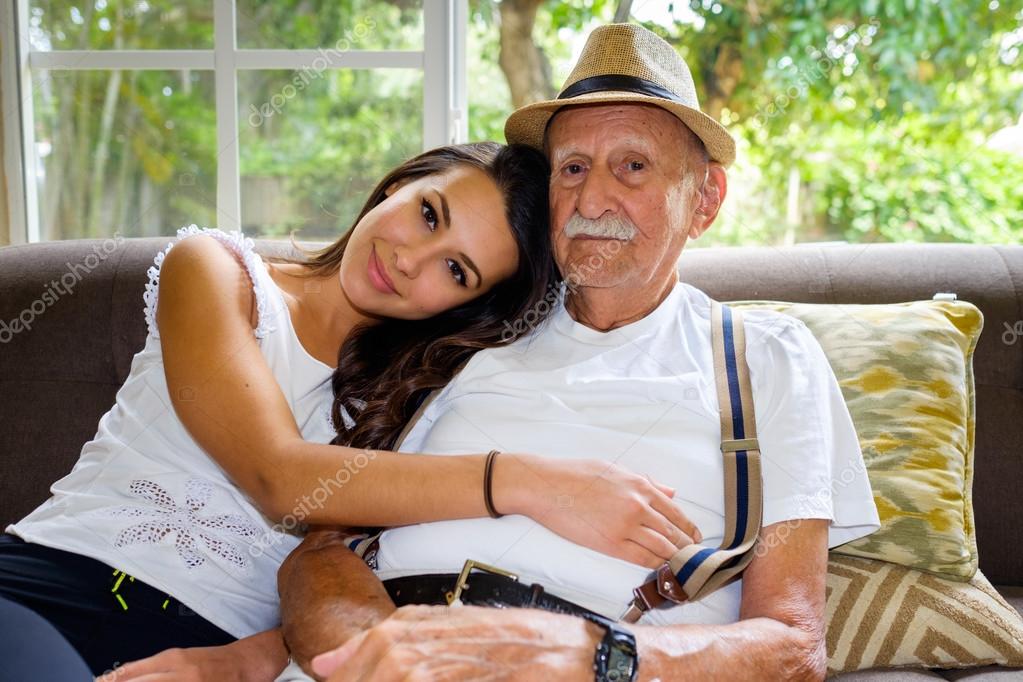 And then I thought they were joking! Well, what does it mean - 9A 2-year-old man will come to Moscow to present his book? How to transport it? “No, no, no,” they said at the Bulgarian Cultural Center, “he will run wonderfully with his feet! And he will tell everything very briskly in Russian. I say: “Well, can I somehow look at him, talk to him?” - "Yes Yes! Or maybe you are flying to Sofia?
And then I thought they were joking! Well, what does it mean - 9A 2-year-old man will come to Moscow to present his book? How to transport it? “No, no, no,” they said at the Bulgarian Cultural Center, “he will run wonderfully with his feet! And he will tell everything very briskly in Russian. I say: “Well, can I somehow look at him, talk to him?” - "Yes Yes! Or maybe you are flying to Sofia?
I had 2.5 days, I flew to Sofia and met a man 92 years old. First, he gave me an interview for four hours, then dragged me into the city, dragged me to show Sofia, talk about her with great love. We ended the evening in a jazz club, from which I, quite tired and wrinkled, went home, and Jackie was still full of such energy and happiness that somehow I felt alive.
This person made me switch to "you" for the third phrase. And the communication that we had, it allowed us to somehow ask the most direct questions. And I, in particular, asked him: “Tell me, but old age is ... You are a person who knows more about it than anyone I have ever talked to.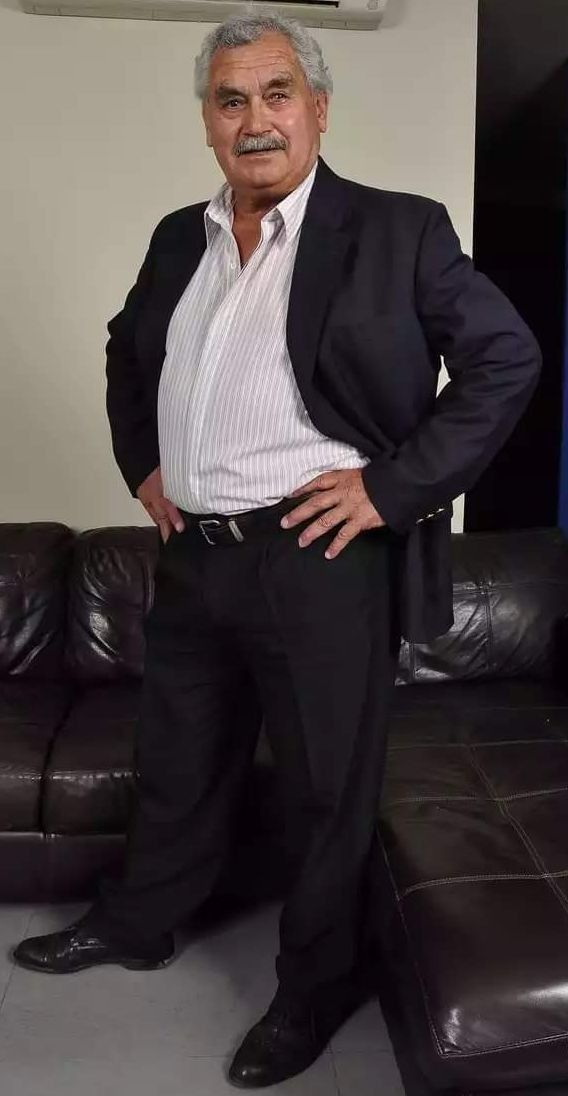 What do you think of her now? And Jackie said, “It's a very lonely business. If you asked me, I might not want to. Everyone you loved is leaving. Everyone you worked with is leaving. Everyone you were with is leaving. And you are alone."
What do you think of her now? And Jackie said, “It's a very lonely business. If you asked me, I might not want to. Everyone you loved is leaving. Everyone you worked with is leaving. Everyone you were with is leaving. And you are alone."
He introduced me to his wife. They got married when Jackie was 22 and she was 19. For the past five years, she has only reacted to him. When he enters the room and takes her hand, she smiles. And there are no more traces of contact with the world. “You know,” Jackie told me, “of course, I thought a lot about whether I should stop, whether I should stop this life. And then I thought: if they show me all this for some reason, then I have to watch it to the end.
What struck me most of all was how tense each day, very limited physically, he snatches even more time to finish a new story, talk about something on the radio, comment on modern politics, take part in public life ... I was struck by that, while inside old age, he did not waste time aging, if I may put it that way.
He is absolutely amazing. He was born in Tsarist Bulgaria, since his dad was left-wing, they were forced to leave for France, where he grew up, then he returned. The Second World War happened, and, as a Jew, he was sent to a camp, he escaped from the camp, then he was caught, sentenced to death, spent three months on death row, then the Red Army entered. Then he went to VGIK to study, became the screenwriter of all the first Bulgarian films. He made several grandiose films with a huge festival destiny together with the GDR, together with the faergash studios he made several grandiose documentaries, which he still boasts of. He made a film about the unification of North and South Vietnam, which aired on six worldwide television networks on the day the agreements were signed. He survived the end of socialism in his country, remaining very left. I tried to tease him, but he looked at me with a rehearsed look and said: "You know, I've been leftist for so long - it's too late to change anything.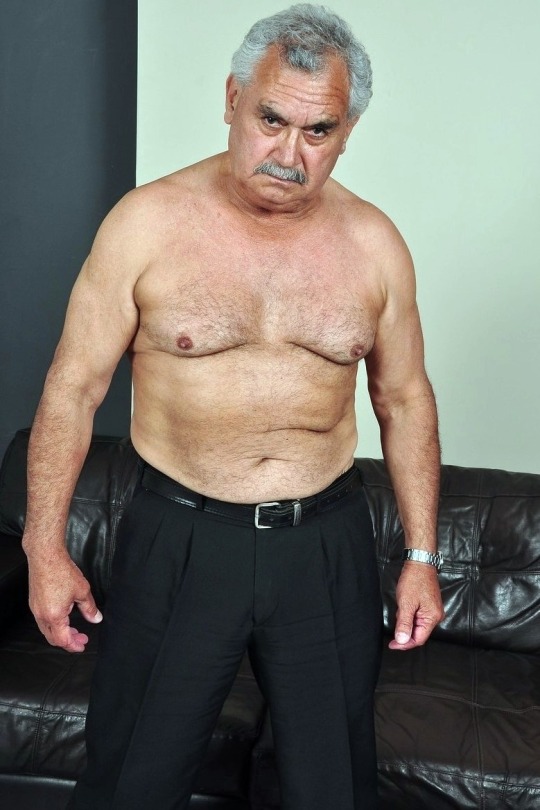 " (applause)
" (applause)
Alexander Gavrilov
Photo: British Council Facebook page
Question from the audience: But did you bring it or not?
Alexander Gavrilov: Of course, they brought it, of course!
Vera Polozkova: And I think that this is not the last festival he came to. I hope.
Question from the audience: Thank you for being here today! My question may not be as benevolent as the previous discussions on the difficult topic of old age. I'm on the way to this, we all try, and after 30-40 for someone there will be a ladder up, and for someone a ladder down. And I'll give you a little preamble. I lived and worked in Germany for 10 years, I returned for the last 10 years, I live and work here. Living and working there, among the Germans, I saw with what responsibility people relate to the process of their aging. With their insurance medicine, with their social security and guarantees, how they bear their personal responsibility to themselves and their families.
I can give you two examples. My former bank colleague at 68, when he was first told that he had heart problems, quit smoking on the first day, and signed up for a fitness center on the second day. At 68! He is now 84 years old, and he is engaged, and God bless him!
I saw another example when one of the big managers at about 67 years old suddenly said to me: “I am rebuilding my house in Würzburg because I was diagnosed with diabetes. I widen the doors, remove the steps, because I am preparing for the fact that in my old age I will ride in a chair. And he does not say that his wife, children or the state should do this to him. He himself thinks in advance about his aging, about what kind of old age he will have.
I'm coming back here. For 10 years I have been going to the fitness center at Luzhniki. Mostly girls go there, they come two or three times to talk on a mobile phone in front of young people and just as quickly disappear. But over 40-45 years old, in these 10 years I have seen, maybe, five or six people who are taking care of their health. They don’t pump muscles, no, they do a bicycle ergometer, an ellipse, they do it so that, God forbid, they don’t end up on their relatives’ necks in a lying, paralyzed position, with saliva on their faces that you yourself can’t clean up after yourself. Here we don't have it.
They don’t pump muscles, no, they do a bicycle ergometer, an ellipse, they do it so that, God forbid, they don’t end up on their relatives’ necks in a lying, paralyzed position, with saliva on their faces that you yourself can’t clean up after yourself. Here we don't have it.
And I have a question. Is this our mentality? Is this upbringing thanks, among other things, to art? If we take Western art, there is the role of the individual and personal responsibility for oneself in this life ... I don’t need to explain to you how it differs in the same American cinematography and ours. Here's how we can get away from the thought: "And let me have a beer belly, but my wife will still love me, she will not go anywhere, I support her." Or the opposite opinion: “I will eat dumplings and a cake loan, it’s okay that I have cellulite, he is my husband, if he loves me, then he will love me like that.” Although the laws of sexual attractiveness cannot be repealed even by our Duma. Maybe we still need to fix something in the conservatory? (applause)
Vera Polozkova: I can say that I insist that something needs to be changed at the conservatory! But it's clear where it all comes from. The fact is that over the past century, the history of this country has been reduced to the monstrous need to simply survive every minute. And the fact that we are talking about it at all now and thinking about it is a sign of incredible warming, because the idea of thinking about your own heart, what it will be like at 70, did not occur to people for a very long time. You just had to survive, feed the children, cope with the incredible pressure when you are "compacted", when you live in a communal apartment, when there are 10 rooms and one toilet.
The fact is that over the past century, the history of this country has been reduced to the monstrous need to simply survive every minute. And the fact that we are talking about it at all now and thinking about it is a sign of incredible warming, because the idea of thinking about your own heart, what it will be like at 70, did not occur to people for a very long time. You just had to survive, feed the children, cope with the incredible pressure when you are "compacted", when you live in a communal apartment, when there are 10 rooms and one toilet.
This responsibility for our health will someday come to us, but, unfortunately, not soon, because the next cold times are coming when we will need to think about something else. And it's good if you live to see the moment when you think about your heart.
After all, this is all about overcoming stress in the cheapest ways: dumplings, alcohol and some things that are not compatible with a healthy, vigorous and fit old age. But I am absolutely sure that the global trends are inexorable and old age will very soon occupy, if not half, then a third of human life, and I think that in 20 years we will come to the conclusion that if you are 50, maybe it’s really worth it already . .. Even if not 50, but 30, like me.
.. Even if not 50, but 30, like me.
Vera Polozkova
Photo: Grigory Sysoev / RIA Novosti
We always know who is to blame for the fact that we have such a bad life, and this is any other person except ourselves. It's always someone, it's all of you, from Obama to the upstairs neighbor, but not yourself. And at the moment when psychology starts to change, I really believe that I will still be conscious, I will see how it has changed, then a completely different story will begin. (applause)
Lyudmila Ulitskaya: Well, what can I tell you… My friend, Natasha Gorbanevskaya, died three years ago. She was 77 years old. She cooked soup, fed a friend, gave him tea, saw him off, wrote the last post, went to bed and did not wake up. And she fell asleep like a child, a hand under her cheek. So she left in her sleep. She was 77 years old. Of course, I envied her desperately. Wonderful!
And then after a while I was talking to her son, Jasik, and he told me something I didn't know. He said: “You understand, this pacemaker (or some other thing that she had in her heart) had already been standing for 10 years, and she was offered to change it. And she said: “No, I don’t want to”…” You see, there is also the highest freedom in this.
He said: “You understand, this pacemaker (or some other thing that she had in her heart) had already been standing for 10 years, and she was offered to change it. And she said: “No, I don’t want to”…” You see, there is also the highest freedom in this.
There is a great degree of freedom in that you work, you know, spend your energy, exercise, play sports, lead a healthy lifestyle. But still, that moment will come. And it will come regardless of whether you smoke, whether you go to training. But still, how wonderful it is when a person has this choice! Like Natasha. This conversation with Jasik just struck me. It’s not that she didn’t go to fitness, not that she didn’t quit smoking, but she lived for her own pleasure, as she liked, and, by the way, this is also worth something. (applause)
Dmitry Vodennikov: We are moving away from old age to the topic of death… My great-grandmother died when she was 99, she was a Christian, I don’t know which one, but at least she was born before the revolution, in the village, so she learned the whole set of Christian rules. She buried her husband, she buried her daughter, she... she buried a lot of people. She survived the revolution, the war. And here we are somehow sitting in the room - my sister, I and great-grandmother, and she is crying. I say: “Baba, why are you crying?” She says, "I'm scared to die." That is, it is impossible to prepare for this at all. You can refuse to insert a pacemaker, but this does not negate the fact that you cannot actually prepare for death. And this is one of the biggest, it seems to me, human sorrows.
She buried her husband, she buried her daughter, she... she buried a lot of people. She survived the revolution, the war. And here we are somehow sitting in the room - my sister, I and great-grandmother, and she is crying. I say: “Baba, why are you crying?” She says, "I'm scared to die." That is, it is impossible to prepare for this at all. You can refuse to insert a pacemaker, but this does not negate the fact that you cannot actually prepare for death. And this is one of the biggest, it seems to me, human sorrows.
At one time, somewhere on the Internet, a question was asked, it was a long time ago: “How would you like to die?” And everyone said: "I want to die in my sleep... I want to go unnoticed..." And I said: "I want to die in consciousness." I would really like to... I am an atheist, I understand that there will be nothing further, but I would really like to watch this performance of mine to the end. I would like to understand what it is, that's when I understand that I'm dying.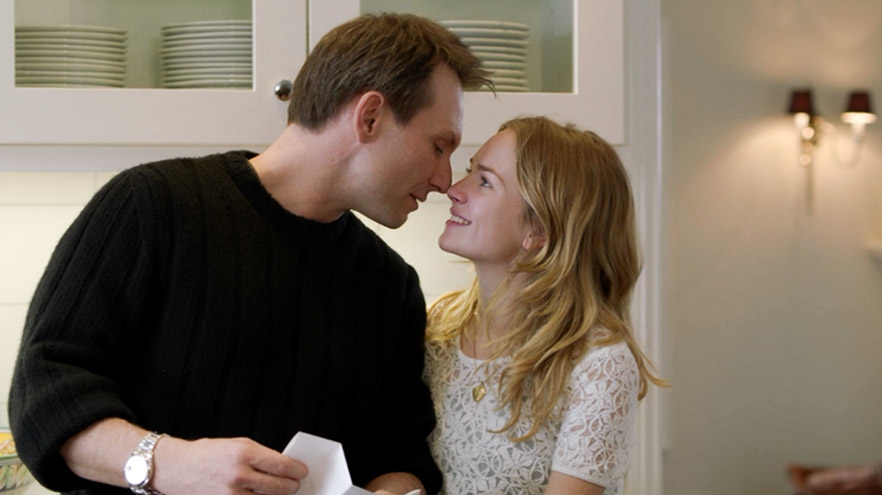 (applause)
(applause)
Alexander Timofeevsky: The worst thing in my life is the death or illness of friends. Well, indeed, 83 years old, and you can imagine how many losses there were. And here they were talking about aging, and this amount of losses is monstrous! And what is behind this? There is a relationship behind it, there is love behind it, there is a part of the soul behind it. Part of the soul, part of the soul ... this, gentlemen, is very important. What makes life possible? Here, as Vera Polozkova said, it is thunder and fury. Feeling a childish outlook on life. But this is individual, it may be only for me, and I cannot give such advice to someone else. But this is throwing headlong into the pool, I will show you with examples. I wrote at the age of 60, maybe a little more:
Where binge dumped me,
On Trubnaya or Samotechnaya,
I, obscene and stupid,
I lay in the gutter.
A vomitous spirit came from me,
And a certain spirit appeared to me,
And he fixed his gaze on me,
And spread his fiery wings,
And he burned half of my soul,
And he left me half of my soul.
Alexander Timofeevsky
Photo: Dmitry Rozhkov / Wikipedia.org
And poets never lie! What is written is true. Or:
Coming into this world for beauty,
I lived so poorly, wildly and godlessly
Just to be one of you
And to prove that it's impossible to live like this.
That's it, gentlemen! And this feeling of thunder and rage, which continues, makes it possible to live! (applause)
The hunt for drunken and elderly men began at 4 pm. How a physical education teacher became a serial killer
"A tall woman in a sports jacket"
On March 1, 2002, the police of the Nagorny district of Moscow received a report of a murder - a man with his throat cut at the bus stop "Shalom Theater" near the metro station "Varshavskaya" . Criminologists have established that they killed a young man quite recently. Despite this, in hot pursuit, it was not possible to find either the killer or even witnesses.
The fact that no one saw the moment of the crime, although it happened in a crowded place and in the daytime, put me on my guard.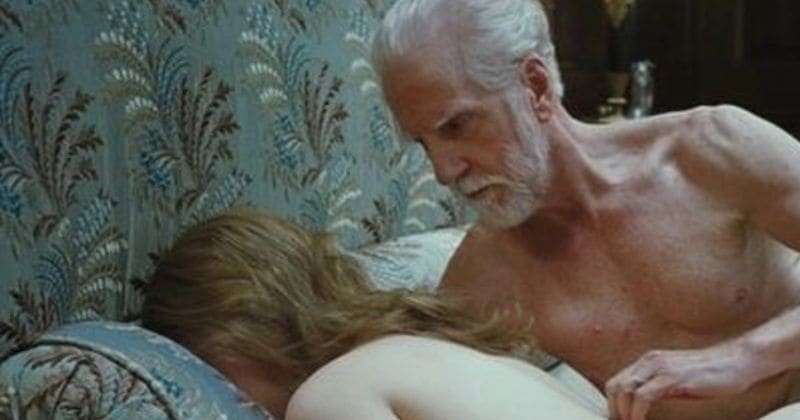 However, as it turned out later, the killer was still seen, they simply did not pay attention. The search for witnesses took quite a long time - and in the course of the investigation, more and more eyewitnesses appeared.
However, as it turned out later, the killer was still seen, they simply did not pay attention. The search for witnesses took quite a long time - and in the course of the investigation, more and more eyewitnesses appeared.
It turned out that during the crime, right in front of the ill-fated bus stop, a group of young people were drinking alcohol.
They told the police that the man found dead was standing quietly at the bus stop until a woman approached him. After that, “something happened between them” and he fell. Young people then decided that the man was drunk. And the woman left as if nothing had happened.
Later, the same woman was remembered by a resident of one of the neighboring houses. As the witness was leaving her yard, she ran into a tall young woman in a sports jacket.
According to vague testimony, the police compiled a sketch of the alleged killer. So far, the image only remotely resembled the real criminal, but with each new attack, the portrait became closer to the real features of Petrova.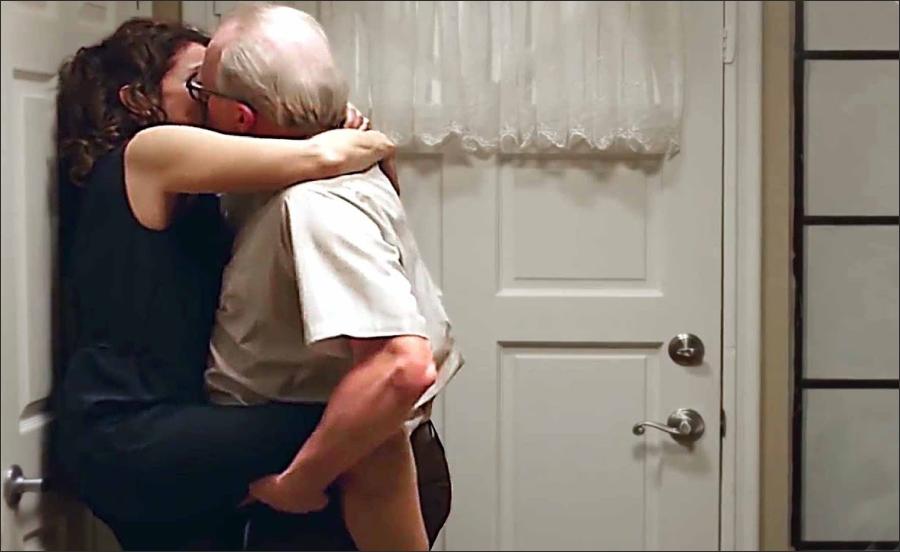
close
100%
New victims and detention
An unsuccessful search continued until one day the investigators received a telephone message with a message about a new attack in already familiar handwriting.
On March 27, Petrova wandered around the yards in search of a new victim. Near house number 17 on Sivashskaya Street, she cut the throat of a pensioner who came out to meet her.
Following three exactly the same crimes occurred in April - all the victims survived, but the police were convinced of their suspicions - a serial killer showed up in the city. She abruptly ran up to the victims, striking in the neck, in the abdomen, and leaving them to die.
The only thing that made the task of the investigators easier was that the criminal operated only in one district.
On April 23, after another attack, the search yielded results. It was on this day, almost immediately after the new murder, that the operatives managed to find a girl very similar to the one described by the witnesses. She turned out to be a physical education teacher at the Moscow Electronic Technology College Maria Petrova, who was immediately detained in her own apartment.
She turned out to be a physical education teacher at the Moscow Electronic Technology College Maria Petrova, who was immediately detained in her own apartment.
"I wanted to cause trouble to someone elderly"
As soon as Petrova was detained, she confessed everything and gave detailed testimony. She remembered each of the murders in great detail. The investigation established her involvement in five episodes of attacks on men: two people died as a result, three survived. Charges in another attack against Petrova were dropped due to lack of evidence.
Maria Petrova committed her first murder when she went out for an evening run, taking a self-defense knife with her. She was walking past the bus stop when a drunken man - her future victim - grabbed Petrova by the jacket and cursed. She pulled a knife from her sleeve and slashed him across the throat. After that, the girl kicked the man in the face, he fell.
After the incident, Petrova said, she had a conflict with an elderly man at work.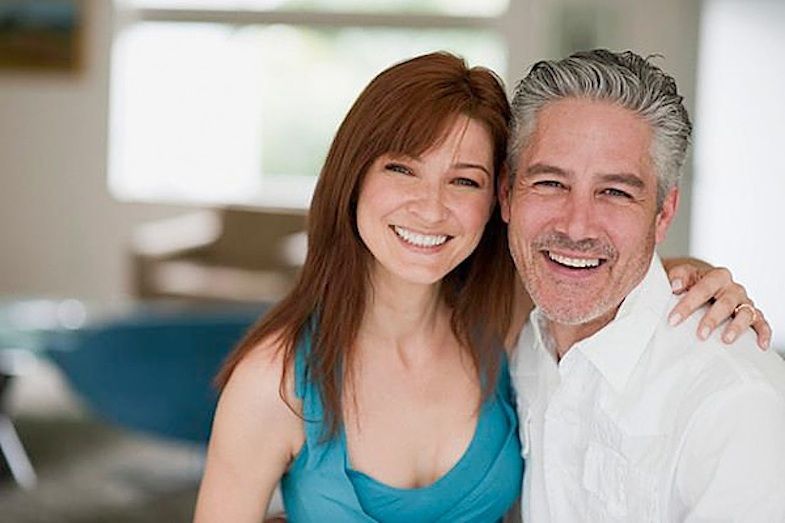 He was the second teacher in physical education and constantly showed to Maria, as she believed, excessive signs of attention. Moreover, she repeatedly tried to quit because of this, but she was refused.
He was the second teacher in physical education and constantly showed to Maria, as she believed, excessive signs of attention. Moreover, she repeatedly tried to quit because of this, but she was refused.
So she had a desire to "make trouble for some old man", and she committed her second murder.
All other crimes were similar to each other. Having stabbed in the neck, as a rule, drunken and elderly people, Maria immediately disappeared from the place, not even trying to make sure whether her victims died or not. Most often, she went hunting at about 4 p.m.
During the investigation, Petrova also said that she killed, wanting to “cause people pain”. At the same time, in the case file there are two different explanations of the reasons why she had such a desire.
In the first case, she said that she had once been raped while drunk, and while committing murders, she tried to avenge herself with something similar to the offender to people, and then Maria completely hated all men.
In the second case, the same hatred was the cause, but because of the attentions of an elderly colleague. By killing people like him, she took revenge. At the same time, the colleague himself, after such accusations from Petrova, as the students of the technical school say, was very worried for a long time, and then died of a heart attack.
“She looked masculine and loved to do push-ups”
Meanwhile, students of the technical school question Petrova's harassment of the elderly teacher. They claim that the woman slandered him. According to the students, everyone loved Maria's colleague, he was very friendly and, apparently, he paid the price for it.
“He could hug, joke kindly, but it was all “fatherly,” the students shared earlier in the media.
According to them, when Maria first came to teach, an elderly colleague tried to help her and wanted to talk, because she was unsociable and withdrawn - he may have felt sorry for her. The gym teacher got it all wrong. The students of the educational institution also said that they themselves never loved Maria Petrova. According to them, her only advantage was that she did not raise her voice. From time to time they even laughed at her among themselves.
The students of the educational institution also said that they themselves never loved Maria Petrova. According to them, her only advantage was that she did not raise her voice. From time to time they even laughed at her among themselves.
“She was masculine, looked masculine, liked to do push-ups. I went to the technical school in a tracksuit, and went home in a skirt and heels. It looked nice. Cars "beeped" to her on the street. She smiled at everyone, she could wave her hand, ”the students said.
Meanwhile, not everyone in the technical school believed at first that Maria Petrova was guilty. Some teachers claimed that she could not attack people and kill. According to them, perhaps she killed one, for whom she was taken, and the rest were "hung" on her.
From job description
In a short time, Maria Petrova proved to be a conscientious and hardworking teacher. There are no complaints or comments from the administration of the technical school and the department of physical education.